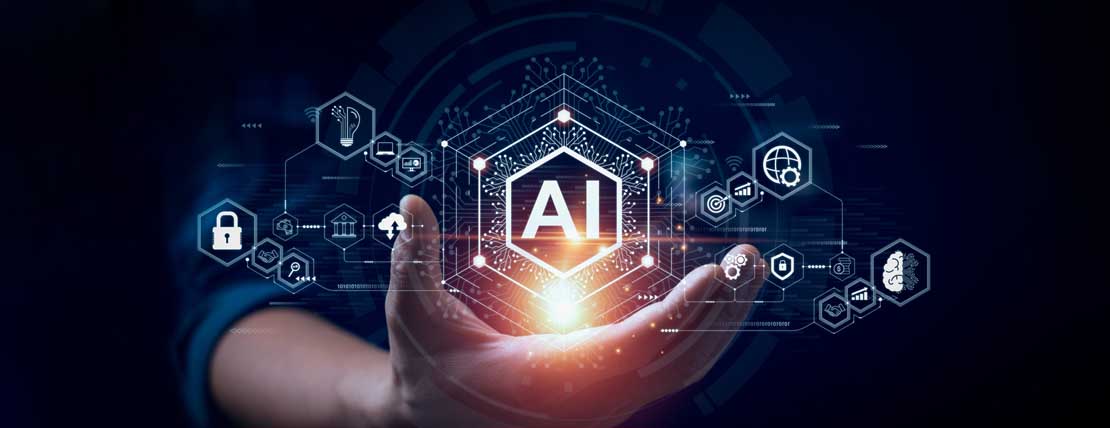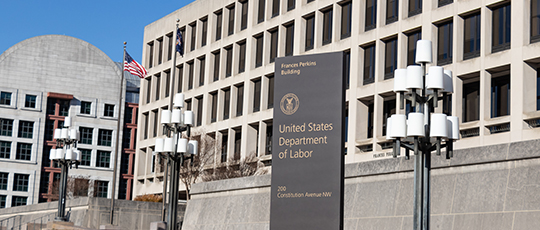For WorldatWork Members
- Considerations When Applying AI to People Analytics, Workspan Daily Plus+ article
- Easy AI Tips to Improve Benefits Communications, Workspan Daily Plus+ article
- Get the Most Out of Your AI Investment, Journal of Total Rewards article
- TR Is Key to Successfully Integrating AI and Work, Journal of Total Rewards article
- Total Rewards Inventory of Programs & Practices, research
- HR & Total Rewards AIntelligence Lab, tool
For Everyone
- How Artificial Intelligence Risks Directly Apply to Total Rewards, Workspan Daily article
- How Will AI Impact TR’s Roles and Strategies Over the Next 5 Years? Workspan Daily article
- How AI Is Transforming the Total Rewards Landscape, Workspan Daily article
- Incorporate AI to Personalize Financial Well-Being Benefits, Workspan Daily article
- Mini-Study: Emerging Insights on AI in Total Rewards, research
Artificial intelligence (AI) is fundamentally reshaping the world of work — and the way organizations approach their rewards strategies. Deloitte’s 2025 High-Impact Total Rewards research revealed AI is no longer just a trend; it’s becoming central to how leading organizations design and deliver meaningful rewards. As organizations experiment with and implement their AI pilots, they’re discovering the transformative potential of emerging technologies doesn’t stop at mere automation. Forward-thinking leaders aren’t just using AI to boost efficiency — they’re leveraging it to create more personalized, engaging experiences for employees.
Deloitte’s research shows technology is empowering rewards teams to have a greater impact on workforce experience. By weaving AI into the DNA of their rewards strategies, mature rewards organizations are unlocking personalized experiences, clearer communications, deeper insights and smarter operations — making AI not just a tool but a true differentiator in the race for talent.
Access additional Workspan Daily articles from this research series:
- How Much Have Rewards Practices Changed Since 2018?
- The Importance (and Outcomes) of Flexible, Agile Rewards Strategies
- Recognition’s Rise in the New World of Total Rewards
A Smarter Way to Impact Workforce Experience
Workforce experience is defined as the sum of a person’s lived experiences at work and overall perception of their organization. Accordingly, curating and maintaining a positive workforce experience is a critical lever for attracting and maintaining the talent necessary to drive key organizational outcomes. Mature organizations tap technology to facilitate moments that matter — the interactions and experiences that evoke memorable, emotional reactions and encourage the best work from individuals. In fact, the research showed these organizations are 3.4 times more likely to leverage integrated rewards technology to enhance the experience of both employees and rewards professionals.
Many organizations are still in the nascent stages of integrating AI solutions into their rewards technology, but its potential to help revolutionize the rewards experience is clear. Mature rewards organizations are catching on: They’re 8.6 times more likely to apply AI and automation to self-service rewards technologies. These organizations harness AI to help streamline interactions with rewards solutions and platforms to drive efficiencies and help gauge worker preferences by aggregating vast sets of data and augmenting their analysis. And, since personalized rewards offerings can significantly improve workers’ rewards experience, mature organizations use AI-enabled solutions to provide curated, expedient rewards recommendations specifically suited to a worker’s needs.
Data and Analytics: A Gateway to Personalized Rewards
Mature rewards functions know that one size does not fit all. Tailoring total rewards strategies to the preferences of individual workers is a significant factor in creating a strong experience — but how can organizations keep tabs of preferences across the workforce?
Deloitte’s research showed mature rewards organizations are 7.2 times more likely to routinely gather and use data and analysis to understand worker preferences and personalize rewards and recognition. AI can help with that. Mature organizations use AI to collect and analyze data from traditional sources like engagement surveys as well as latent data from tech use to gain a holistic sense of the rewards offerings that matter most to their employees. And, since preferences constantly change in the face of fluctuating workforce conditions, AI can help organizations quickly sense alterations in workforce experience and identify offering adjustments to maintain both relevance and competitive differentiation.
Powering Insights and Understanding
When it comes to rewards, workers expect clear and personalized communications about their organizations’ offerings. Historically, organizations dropped the ball in this area: Deloitte’s 2018 study found only 26% of survey respondents had a well-defined rewards communication strategy. Today, organizations are providing more information than ever — and in ways that fit the individual preferences of their workers.
AI can be a critical tool in enhancing employee understanding of the often-complex world of total rewards. AI-powered solutions from simple chatbot assistants to advanced, interactive platforms can curate and recommend optimal benefit choices based on an individual’s life events and preferences. By using AI to analyze vast swaths of data, organizations can align personalized recommendations of offerings like family planning and fertility benefits that might otherwise get lost in the shadows of broader offerings like wellness stipends. AI also can support career pathing by recommending development opportunities and advancement tracks tailored to each employee’s goals and interests. Additionally, AI tools can automatically deliver this information via multiple form factors (e.g., wearables, mobile browsers), so workers have on-demand access to the knowledge they need.
Competitive Compensation
Deloitte’s research found mature rewards organizations are competitive and agile when it comes to compensation. Forty-nine percent of surveyed organizations reported targeting base pay above the market median, and mature organizations are almost three times more likely to do so. These organizations don’t update their compensation strategies solely on arbitrary review periods — they aggressively pursue flexible and competitive programs based on real-time market data.
AI can help turn that timely data into a functioning lever to help organizations fine-tune their compensation strategies at speed. Organizations can use AI solutions to automate the labor-intensive tasks usually relegated to compensation teams — including updating salary ranges, developing job descriptions and auditing data — freeing workers to focus on strategic activities in partnership with the business. AI agents also can provide support to workers and managers throughout the organization, answering questions and providing personalized and targeted communications to make informed decisions around compensation. And, since agile compensation strategies are a defining characteristic of mature rewards functions, organizations seeking to build maturity can leverage AI tools to detect early anomalies and internal and external trends to inform competitive decision-making.
The AI-Enhanced Rewards Function
Mature rewards functions are characterized by robust partnerships between HR and IT. In the age of AI, that means rewards professionals are deploying intuitive and accessible digital rewards platforms and using analytics to guide rewards strategies and measure impact. The result is a nimble and intentional rewards strategy, one in which leaders and workers are freed from manual transactions to focus on the next-generation solutions and applications that drive effective experiences.
Organizations seeking to increase their rewards maturity should consider utilizing AI tools and solutions to enhance:
- Pay benchmarking and job leveling. AI can sort through mountains of internal and external data to help organizations develop fair pay strategies.
- Compensation structure design. Machine learning can help organizations model a range of agile pay models and forecast their impact before they are executed.
- Personalized communications. Generative AI can craft tailored total rewards statements and offer timely responses to worker questions via the medium that best suits their preferences.
- Offerings that matter. AI can collect and analyze data from vast swaths of sources (e.g., engagement surveys, tech use) to understand and curate the rewards offerings that matter most to individual workers.
- Career development. AI platforms can map out personalized training and growth paths based on an individual worker’s background, current skills and aspirations to design career journeys that both suit their needs and align with organizational goals.
- Continuous program improvement. AI solutions can review benefit plans and proactively suggest tweaks to maximize impact.
Editor’s Note: Additional Content
For more information and resources related to this article, see the pages below, which offer quick access to all WorldatWork content on these topics:
#1 Total Rewards & Comp Newsletter
Subscribe to Workspan Weekly and always get the latest news on compensation and Total Rewards delivered directly to you. Never miss another update on the newest regulations, court decisions, state laws and trends in the field.









